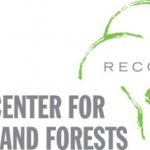RECOFTC launches Voices for Mekong Forests in Phnom Penh

The Center for People and Forests (RECOFTC) has launched a new five-year, EU-supported project ‘Voices for Mekong Forests’ (V4MF) in Phnom Penh, aiming to “strengthen the voices of non-state actors (NSA), including civil society, Indigenous Peoples and local community groups, to improve forest governance, sustainable forest management and the contribution of forests to development of Mekong countries.”
Read the full release below, or at RECOFTC’s website.
—
Voices for Mekong forests
Project title: Voices for Mekong forests (V4MF)
Donor: European Union
Duration: 2017-2021
Participating countries: Cambodia, Lao PDR, Myanmar, Thailand, Viet Nam
Background
The Mekong region is home to an estimated 85 million forest-dependent people, of whom more than a third are indigenous peoples. Overall, an estimated 30 percent of the rural population in the Mekong region are living in poverty. The region lost about 5 percent of its forest cover between 1990 and 2015. Forest communities in the Mekong region thus face many challenges in ensuring that they can make a sustainable living from the forest landscapes.
While a great deal of progress is being made to address these issues, forest governance remains a fundamental challenge in the Mekong region. There are many initiatives trying to support the efforts of local forest communities, while at the same time trying to address illegal logging, deforestation and forest degradation, rural poverty, and protecting biodiversity. At the heart of these efforts is governance. Without strong governance, built on foundations that include effective participation, transparency and accountability, these efforts will fail.
Non-state actors (NSAs), particularly civil society, play a fundamental role in strengthening governance. However, they face many challenges including the fact that they are often not effectively engaged in forest governance processes — due to a lack of participatory processes in policy making; capacity of the NSAs to effectively participate in dialogues and exchanges with state and private actors; and scarcity of appropriate forest data. In recognition of this, the European Union is supporting the project “Voices for Mekong forests.”
Project overview
The overarching rationale of the project is that for forests to be sustained, forest landscape governance must be based on principles of inclusivity, requiring effective NSA participation. The project recognises that many national, regional and global initiatives offer opportunities for NSAs to become actively involved in government-led forest landscape dialogues and decision-making processes. The project therefore leverages and contributes to these initiatives, particularly the Forest Law Enforcement Governance and Trade – Voluntary Partnership Agreements (FLEGT-VPA) initiative and Reducing Emissions from Deforestation and forest Degradation (REDD+), by helping to ensure they are built on multi-stakeholder processes, and that civil society have the capacity to effectively engage on issues, present their concerns to policy makers, and organise themselves to share information and strengthen negotiating positions.
Objectives
The overall objective of the five-year (2017-2021) project is that by 2030 NSAs in the Mekong region (Cambodia, Lao PDR, Myanmar, Thailand, Viet Nam) effectively drive national forest landscape governance processes, particularly in FLEGT-VPA and REDD+. This overall objective of the project will be achieved through the following four result areas:
By 2019 NSA forest governance monitoring systems (FGMS) are piloted and scaled up
By 2020 NSAs have strengthened rights in conjunction with increased capacity to improve gender and socially inclusive forest governance
By 2021 effective and coordinated NSAs engage in national FLEGT-VPA and REDD+ processes and contribute to the development of transparent and accountable FGMS
By 2019 a regional NSA learning platform facilitates coaching and information exchange, including lessons learned and best practices on FGMS
Geographical focus
The project is working on regional, national and landscape levels, recognising that efforts to address the challenges facing forest governance in the region need to take a holistic approach.
The transboundary focus of this project covers three landscapes across five countries. These landscapes are home to many forest dependent communities, and among the most biodiverse in the region, providing a range of ecosystem services:
- Dawna Tenasserim Transboundary Landscape (DTL) – covering Tanintharyi Nature Reserve (Myanmar) and Western Forest Complex (Thailand)
- Northern Thailand – Lao PDR Transboundary Landscape (NTLL) – covering Doi Phu Kha National Park (Thailand) and Nam Pouy National Protected Area (Lao PDR)
- Viet Nam – Lao PDR – Cambodia Transboundary Landscape (VLCL) – covering: a) Eastern Plains Landscape (Cambodia bordering with Viet Nam); b) Quang Nam province, Central Annamites; Kon Tum province, Central Highlands (Viet Nam bordering Cambodia and Lao PDR); and, c) Xe Pian and Dong Amphan National Biodiversity Conservation Areas (Lao PDR)
Activities
The Project will focus on the following activities (at landscape, national and regional levels):
- Establish a Forest Governance Monitoring System (FGMS) to monitor and strengthen forest landscape governance. The Project will assess and develop effective FGMS that can build the capacity of NSAs to generate reliable information using GIS/web-based systems, and mobile technology to pilot FGMS in the Mekong countries, and particularly in the transboundary landscapes.
- Provide capacity development for NSAs to assess and monitor forest landscape governance.This will occur through a series of participatory learning interventions so that NSAs can subsequently support, for example, IPs to utilize FGMS in pilot sites in the transboundary landscapes.
- Enhance NSA ability to capably respond to relevant policy and governance related challenges and opportunities
Project partners
RECOFTC – The Center for People and Forests
WWF(link is external) (Germany and Greater Mekong)
East West Management Institute – Open Development Initiative(link is external) (EWMI-ODI)
NEPCon(link is external) (Nature Economy and People Connected)
NGO Forum on Cambodia(link is external) (Cambodia)
Lao Biodiversity Association(link is external) ((LBA) Lao PDR)
Myanmar Environment Rehabilitation-Conservation Network(link is external) ((MERN) Myanmar)
Raks Thai ((A member of CARE International) Thailand)
People and Nature Reconciliation(link is external) ((PanNature) Viet Nam)
For more information, contact:
Etienne Delattre
Project Coordinator, RECOFTC
Email: etienne.delattre@recoftc.org

